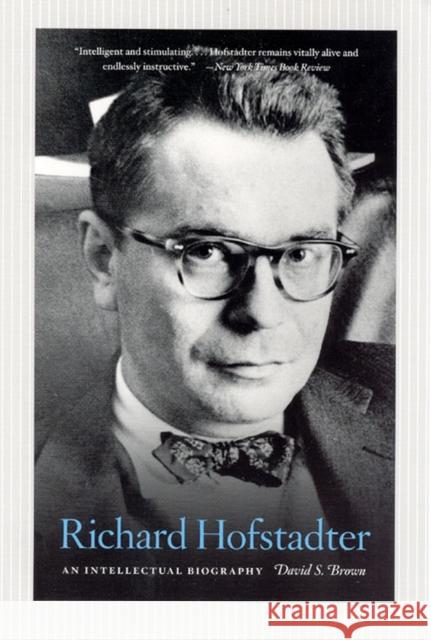Richard Hofstadter : An Intellectual Biography » książka
Richard Hofstadter : An Intellectual Biography
ISBN-13: 9780226076416 / Angielski / Miękka / 2007 / 320 str.
Richard Hofstadter (1916-70) was America s most distinguished historian of the twentieth century. The author of several groundbreaking books, including "The American Political Tradition," he was a vigorous champion of the liberal politics that emerged from the New Deal. During his nearly thirty-year career, Hofstadter fought public campaigns against liberalism s most dynamic opponents, from McCarthy in the 1950s to Barry Goldwater and the Sun Belt conservatives in the 1960s. His opposition to the extreme politics of postwar America marked him as one of the nation s most important and prolific public intellectuals.
In this masterly biography, David Brown explores Hofstadter s life within the context of the rise and fall of American liberalism. A fierce advocate of academic freedom, racial justice, and political pluralism, Hofstadter charted in his works the changing nature of American society from a provincial Protestant foundation to one based on the values of an urban and multiethnic nation. According to Brown, Hofstadter presciently saw in rural America s hostility to this cosmopolitanism signs of an anti-intellectualism that he believed was dangerously endemic in a mass democracy.
By the end of a life cut short by leukemia, Hofstadter had won two Pulitzer Prizes and his books had attracted international attention. Yet the Vietnam years, as Brown shows, culminated in a conservative reaction to his work that is still with us. Whether one agrees with Hofstadter s critics or his fans, the importance of this seminal thinker cannot be denied.
In this illuminating biography . . . Brown] freshens the worn-out chronicle of postwar Upper West Side intelligentsia by re-telling it from Hofstadter s playful, eternally skeptical, oddly uninflammatory point of view.. . . Above all, Brown helps readers assess Hofstadter as a member of a generation of American historians every bit as important as (and in some respects more so than) the well-known Progressive generation of Charles Beard, Frederick Jackson Turner, and Vernon Parrington. Sean Wilentz, "New Republic""











